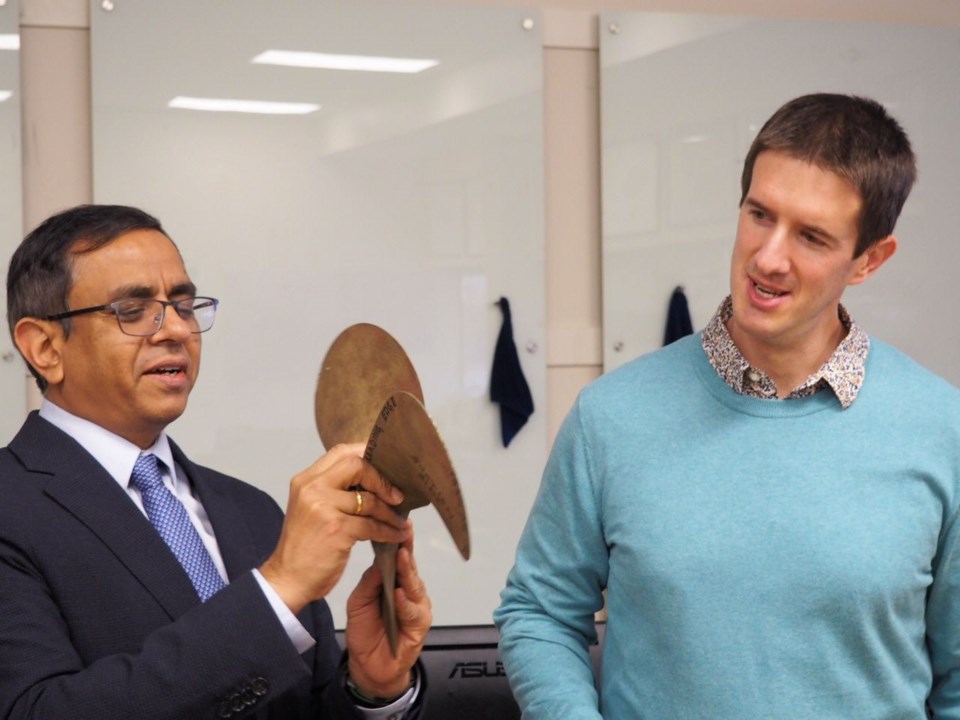Engineers at a B.C. university are trying to sound a silent alarm with solutions to protect whales from harmful ship noise.
The project, led by a team at the University of British Columbia, found that chronic ship noise can lead to stress, hearing loss and feeding problems for marine mammals (whales, dolphins and porpoises).
An associate professor in the department of mechanical engineering says propeller noise accounts for much of the acoustic barrage from ships.
“Propeller noise can hit 170 decibels, the equivalent of a jet engine or a rocket lift-off,” said Dr. Rajeev Jaiman.
UBC researchers are now diving in with suggestions and ideas on how to address the issue.
The ship’s movement and propeller rotation create steam bubbles that implode, which leads to a popping effect and a high-pitched singing that can irritate crew and passengers onboard. It can also disrupt marine life within a 100-kilometre radius.
Researchers Jasmin Jelovica and Jaiman are proposing to inject a jet of fluid through the propeller to reduce noise and help control propeller movement. Another suggestion is to add wavy and serrated edges on the propellers to break up flow patterns that cause noise.
Jelovica, the project's co-lead, is a naval architect and an assistant professor of mechanical and civil engineering. He's developing artificial intelligence to rapidly analyze the fluid interaction and dynamics behind the noise.
He hopes to provide marine engineers with newly designed propellers that are quieter. Innovative material for ships could also reduce the weight of the structural components up to 50 per cent, he adds.
“Advanced structures could be better noise barriers. They can be stronger and have other benefits as well,” says Jelovica.
Sandwich panels, made of metals and composites in the hulls of ships, are being used currently. This structural change, he says, can potentially affect safety and other aspects. That means changes to the ships need to happen slowly.
“The good news for us, as researchers, is that the marine industry is receptive to these innovations. They recognize the need to change and to become more sustainable and environmentally friendly,” says Jelovica.
Jelovica and Jaiman are working closely with Seaspan Shipyards, Robert Allan Limited and Vard Marine. The project is expected to last for five years; funding support, meanwhile, has come from the Natural Sciences and Engineering Research Council of Canada.
The scientists recently received additional funding from Transport Canada’s Quiet Vessel Initiative.



